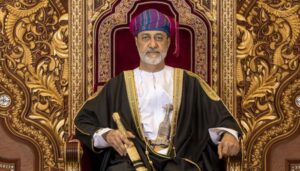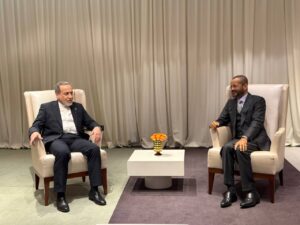Oman Strengthens Investment Climate Through Infrastructure Modernization, Legal Reforms and Digital Transformation

Muscat, The Gulf Observer: The Government of the Sultanate of Oman has intensified its efforts to enhance the national investment environment through substantial infrastructure development, regulatory reforms, and the adoption of advanced digital solutions aimed at attracting greater foreign direct investment (FDI).
As part of this drive, Oman has modernized its ports, free zones, road networks, and logistics services while enacting laws to promote public-private partnerships (PPPs) and streamline procedures for investors. These initiatives, coupled with structural reforms and new incentives, are designed to strengthen Oman’s position as a leading regional destination for foreign investment.
Property registration processes in the Sultanate have been simplified through a partially digital system supported by clear guidelines, significantly reducing the time required to issue title deeds. Similarly, obtaining building permits—an essential prerequisite for investment projects—has been made easier through municipal coordination, including Muscat Municipality, in alignment with the Ease of Doing Business Index.
Oman has also achieved notable advancements in the energy and electricity sectors, including the expansion of a modern power grid and the introduction of innovative services such as prepaid meters and well-defined timelines for connecting new projects to the grid. The rollout of 5G networks and enhanced digital infrastructure further reinforce Oman’s competitiveness as an investment hub, underpinned by the nation’s social stability, security, and high standard of living.
A key milestone in the country’s digital transformation is the Unified Municipal System project, which seeks to standardize and improve municipal services across all governorates using smart technologies. This centralized platform, designed for domestic and international users, will integrate approximately 93 electronic services and consolidate more than 300 municipal procedures into a single system. The initiative leverages artificial intelligence and smart city concepts to streamline processes, enhance efficiency, and improve user experiences.
Complementing this, a range of integrated digital platforms has been launched to advance real estate and urban planning services, including the “Amlak” platform, which provides 59 main services and 83 sub-services across legal, planning, development, and social housing fields.
Environmental sustainability also remains a central focus, with all new projects undergoing classification to determine the appropriate level of environmental assessment—comprehensive, simplified, or basic—depending on their scale and nature.
Dr. Yousuf bin Hamad Al Balushi, an economic expert and founder of the Smart Gateway for Consulting and Investment, emphasized that Oman’s business environment has seen tangible progress. He noted that maintaining a competitive and flexible investment landscape requires continuous development and a cultural transformation among both government entities and investors. “There is a national need to enhance local content and create job opportunities for citizens, which demands sustained capacity-building and a renewed service-oriented mindset,” he stated.
Similarly, Dr. Abdulsalam Faraj Yahya, economic expert at the Oman Chamber of Commerce and Industry (OCCI) and member of the Omani Economic Association, highlighted that Oman has undergone significant economic transformation through legislative restructuring. Key laws such as the Foreign Capital Investment Law, the Public-Private Partnership Law, and the Bankruptcy Law have strengthened investor confidence and business resilience.
He also pointed to the government’s comprehensive policies—such as the Medium-Term Fiscal Balance Plan, the Nazdahir National Program, the Financial Stimulus Plan, and the Export Support and Promotion Center—which have contributed to fiscal stability and a more attractive investment climate.
Moreover, the establishment of economic zones, free zones, and industrial cities has bolstered Oman’s infrastructure base, while the OCCI continues to play a pivotal role in empowering the private sector. The Chamber has launched several initiatives, including the creation of international business councils and support centers such as the Commercial Arbitration Center, the National Product Coding Center, the Social Investment Center, the Economic Research and Studies Center, the Entrepreneurship and Franchise Center, and the Financial Manager Program.
These integrated national efforts have yielded measurable results, including GDP growth, improved credit ratings, a reduction in the state budget deficit, and an increase in private sector employment for Omani nationals. They have also led to a notable rise in foreign direct investment and strengthened Oman’s standing as a dynamic hub for regional and international trade.


